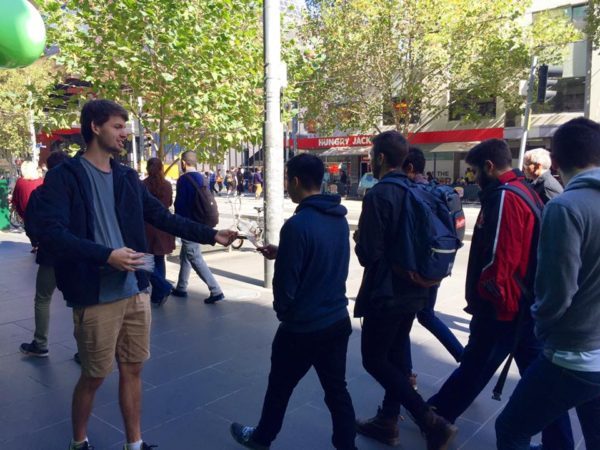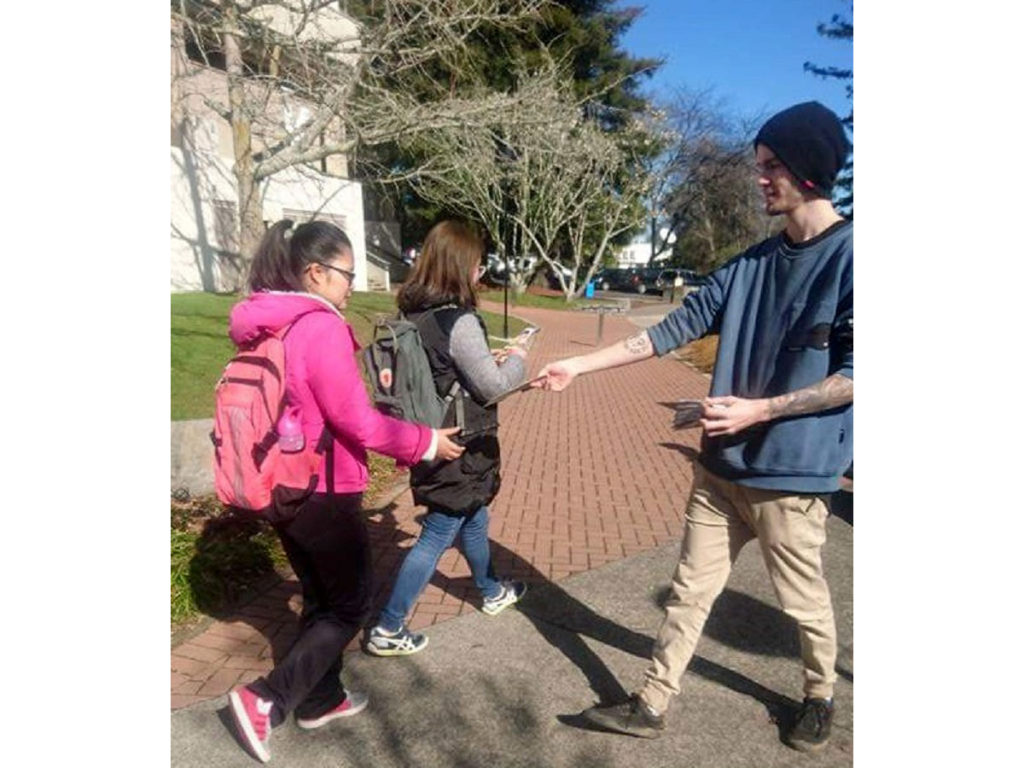By Sam Tucker, Australia and New Zealand Outreach Coordinator

Ever since I first learned about the suffering of animals in factory farms and slaughterhouses, I’ve wanted to do more to help than just change my diet. Don’t get me wrong, simply eating vegan or vegetarian does make a huge difference—in fact, going vegetarian represents sparing about 35 mammals, birds, and fish every year. But if we can inspire just one other person to change their diet, we’ve already doubled our impact for animals!
Through advocating for others to adopt a more compassionate diet, we can save thousands of more animals than we ever could have through changing our own dietary choices alone.
I’ve been vegan for more than eight years, and since then I’ve been involved in many different forms of activism, including organizing and attending protests, hosting an animal rights radio show, creating YouTube videos, and running websites. But of all the forms of activism I’ve been involved in, I’ve found leafleting at universities with Vegan Outreach to be one of the most fun, easy, and effective ways to inspire people to adopt a compassionate diet.
Almost every day that I leaflet, people tell me they want to go vegan or vegetarian after reading about the horrors of factory farming. A study conducted by Farm Sanctuary in 2013 found that about 1 in 50 students who receive a leaflet go vegetarian or pescatarian. You could spend just one hour leafleting, hand out 100 leaflets or many more and there could be many new vegetarians!
Considering that the average meat-eating person will eat about 2,000 animals in their lifetime, that one hour of leafleting has the potential to spare thousands of animals.

As well as being an effective way to save animals, leafleting is also easy to do! Most people simply take a leaflet and say, “thank you” or don’t take a leaflet and say, “No, thank you.” The people who stop to talk are usually doing so to ask questions about going veg or to tell you that they’re already veg. Overall, I’ve found that the general reaction from the public is very positive.
Virtually everybody is against animal cruelty. Most people simply don’t realize how much cruelty and suffering is inherent in the production of food made from animals or how easy it is to replace animal food products in your diet. When we educate people about this in a friendly, positive, and non-confrontational way, they’re very often receptive to our message.
So, go ahead and give leafleting a shot!
Visit this page for more information.